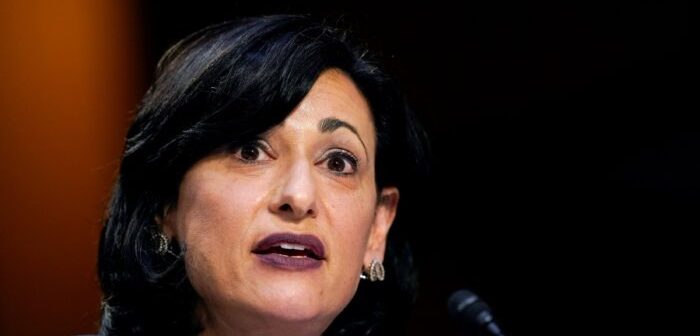Centers for Disease Control and Prevention (CDC) Director Rochelle Walensky said she doesn’t have the answers on whether COVID-19 booster shots will be mandated on a yearly basis.
“I want to emphasize that our goal right now is to stay ahead of the virus. We want to boost now so we don’t end up in a vulnerable place,” said Walensky in answer to a question by a CBS News anchor about whether people should be prepared for annual booster doses. “Your question is an important one, and it is one we don’t necessarily have the answer for yet. We are working to stay ahead of the virus,” she added.
In August, Walenksy said that she does not expect annual booster doses to be commonplace.
“I don’t want to say never, but we are not necessarily anticipating that you will need this annually,” she said at the time.
Several days ago, Walensky overruled a CDC advisory panel’s recommendation and made it possible for the Pfizer-BioNTech COVID-19 booster available to those aged 65 and older and some individuals who work in certain jobs that may expose them to the CCP (Chinese Communist Party) virus. Some critics have said that Walenksy’s decision was not based on recommendations made by a panel of scientists but was instead designed to adhere to the Biden administration’s COVID-19 agenda.
When pressed about her decision last week, Walensky said that it was a “close call” and was handed down “because of all the evidence we reviewed both at the [Food and Drug Administration] FDA and at the CDC.” She added, “I felt it was appropriate for those people to also be eligible for boosters.”
During a briefing on Sept. 24, the CDC director said she “didn’t overrule” the committee when she rejected a recommendation not to allow boosters for 18- to 64-year-olds who are at a higher risk of exposure to the CCP virus due to their living situation or workplace. Some panel members said that Walensky’s recommendation could apply to virtually anyone in the United States.
“If I had been in the room, I would have voted yes, and that was just how my recommendations came out after listening to all of their scientific deliberations,” she said last week. “To the extent that people are concerned about confidence, I would say they should listen to the deliberations themselves. We did it publicly, we did it transparently, we did it with some of the best scientists in the country.”
CDC committee member Dr. Matthew Zahn, a pediatric infectious diseases specialist, said he had concerns about the difficulty of implementing boosters for people between the ages of 18 and 65 who work in a job or other setting that has a high risk of COVID-19 exposure. Another member, Dr. Matthew Daley, told the panel that the potential guidance would be “broad enough that it could limit access to other groups.”
Earlier this month, an advisory panel with the FDA recommended against providing Pfizer boosters for people under the age of 65, as some experts expressed concern about potential side-effects from the additional doses among younger Americans. Some panelists also asserted that Pfizer did not provide enough data to support its claim that its two-shot vaccine series is now offering waning protection.
Source: Theepochtimes

